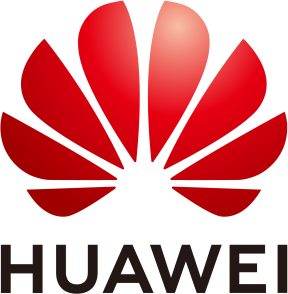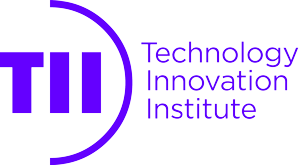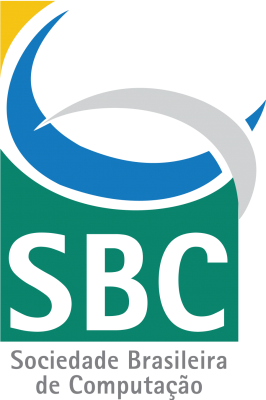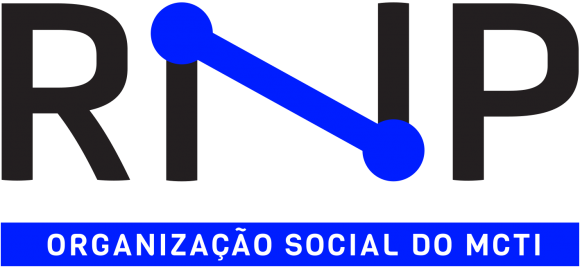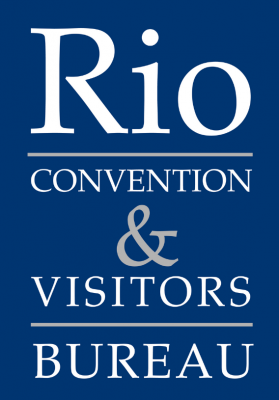Workshop Charis
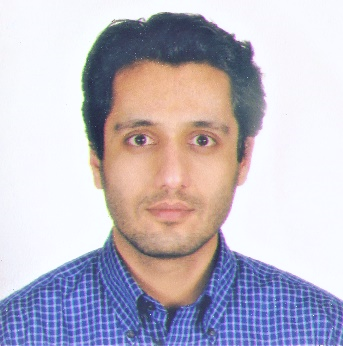 |
Saeed R. Khosravirad, Nokia Bell Labs, USA Saeed R. Khosravirad is a Member of Technical Staff at Nokia Bell Labs. In this role, he contributes to innovating the future generation of wireless networks with ultrareliable and low latency communications. He received his Ph.D. degree in telecommunications in 2015 from McGill University, Canada. Prior to that, he received the B.Sc. degree from the department of Electrical and Computer Engineering, University of Tehran, Iran, and the M.Sc. degree from the department of Electrical Engineering, Sharif University of Technology, Iran. He is currently leading research projects in Bell Labs investigating various aspects of radio access for industrial IoT. During 2018-2019, he was with the Electrical & Computer Engineering department of University of Toronto, Canada as a Visiting Scholar. He is an editor of the IEEE Transactions on Wireless Communications, and guest editor of the IEEE Wireless Communications magazine. His research fields of interest include wireless communications theory, cellular network technologies with emphasis on ultra-reliable communication for industrial automation, and radio resource management for 5G and beyond. |
 |
Trung Q. Duong, Queen's University of Belfast, UK Trung Q. Duong is a Professor, Chair of Telecommunications at Queen’s University Belfast, U.K and a Research Chair of the Royal Academy of Engineering. He has been a TPC co-chair for many IEEE conferences and workshops including the most recently IEEE GLOBECOM 2016 Signal Processing Symposium. He is the founder and co-organizer of a series of IEEE GLOBECOM 2013-2018 Workshop on Trusted Communications with Physical Layer Security. Prof Duong is an Editor of IEEE Trans on Wireless Communications and Executive Editor for IEEE Communications Letters. He was an Editor of IEEE Trans on Communications, IEEE Communications Letters and the Guest Editor of IEEE Journal in Selected Areas on Communications, IEEE Communications Magazine, IEEE Wireless Communications Magazine. His current research interests include wireless communications, signal processing and machine learning with focus on ultra-reliable and low-latency communications for 6G networks. He is the recipient of the Best Paper Award at IEEE VTC 2013, IEEE ICC 2014 and IEEE GLOBECOM 2016, 2019. |
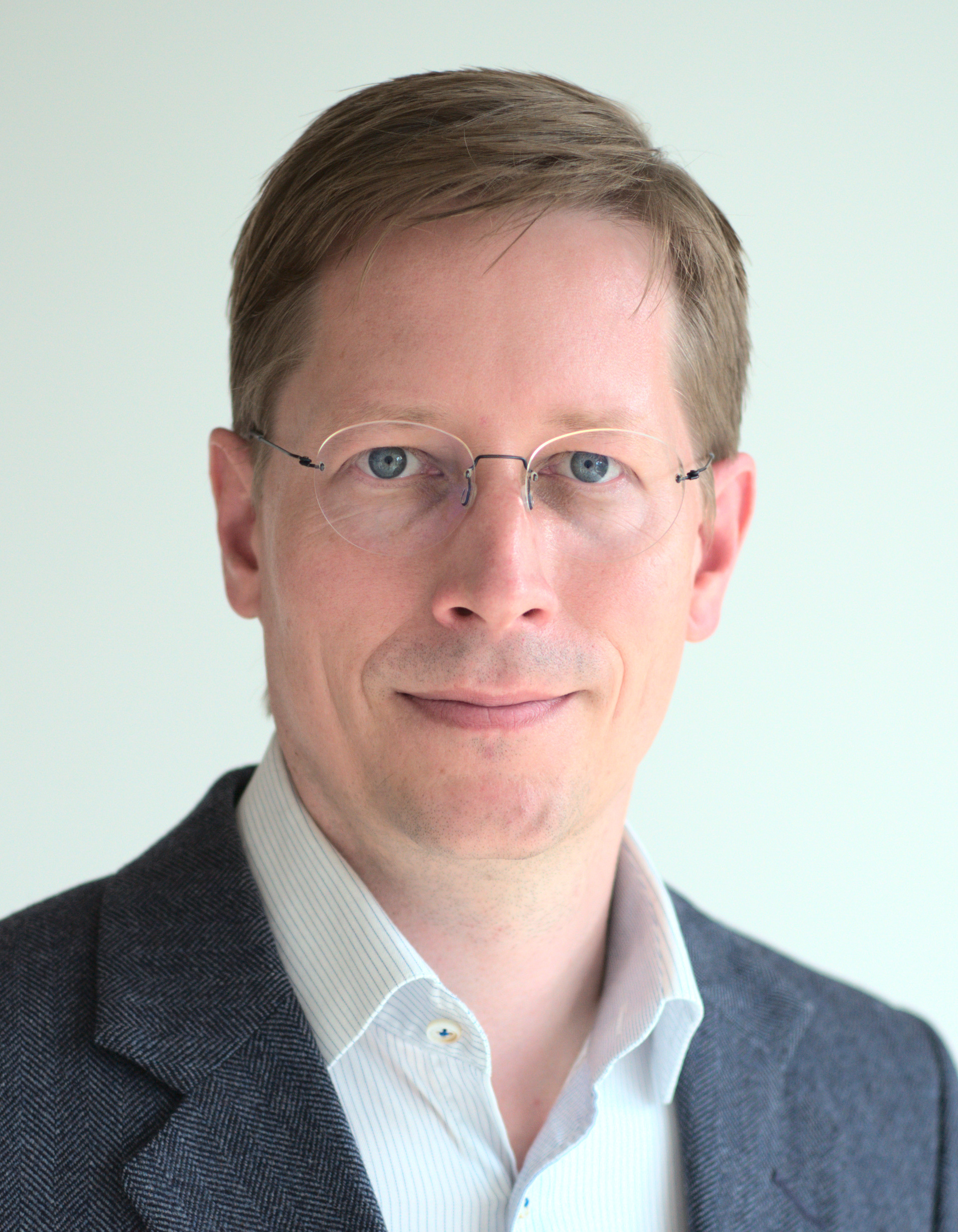 |
Holger Claussen, Tyndall National Institute, Ireland Holger Claussen is Head of the Wireless Communications Laboratory at Tyndall National Institute, and Research Professor at the School of Computer Science & Information Technology, University College Cork. At Tyndall, he is building up research teams in the area of RF, Access, Protocols, AI, and Quantum Systems to invent the future of Wireless Communication Networks. Previously he led the Wireless Communications Research Department of Nokia Bell Labs located in Ireland and the US until 2020. He received the 2014 World Technology Award in the individual category Communications Technologies for innovative work of “the greatest likely long-term significance” for his contribution to Small Cells. Holger received his Ph.D. degree in signal processing for digital communications from the University of Edinburgh, United Kingdom in 2004. He is author of the book "Small Cell Networks", more than 130 journal and conference publications, 78 granted patent families, and 46 filed patent applications pending. He is Fellow of the IEEE, Fellow of the World Technology Network, and member of the IET. |
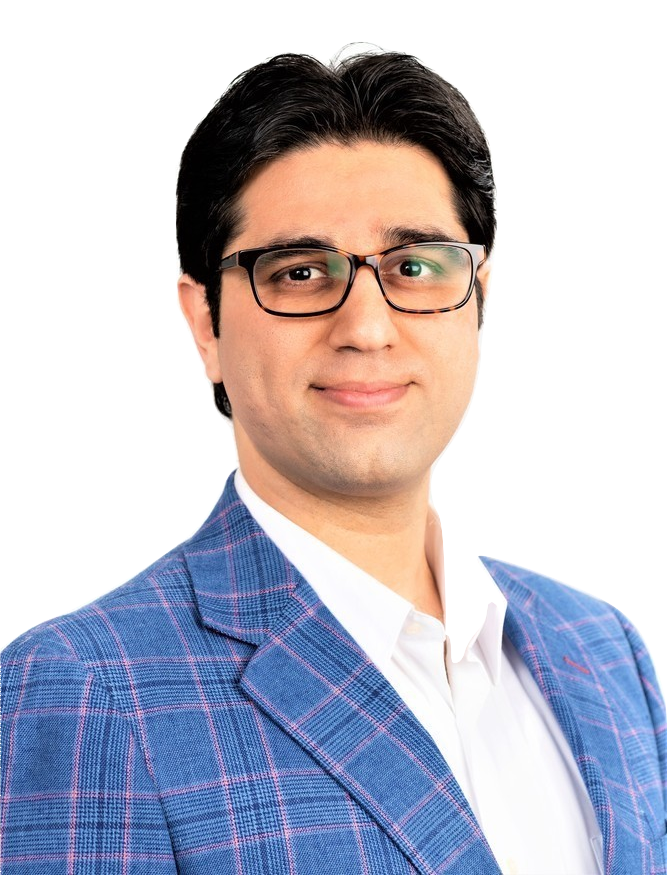 |
Mahyar Shirvanimoghaddam, The University of Sydney, Australia Mahyar Shirvanimoghaddam is a Senior Lecturer (Assistant Professor) in Telecommunications at The Centre for IoT and Telecommunications, The University of Sydney, Australia. He received his BSc and MSc degrees, both in Electrical Engineering, with 1st Class Honor in 2008 and 2010, respectively from University of Tehran and Sharif University of Technology, Iran. He received his PhD in Electrical Engineering from The University of Sydney, Australia, in 2015. He is an IEEE Senior Member and a Fellow of the Higher Education Academy (FHEA). In 2018, he was selected as one of the Top 50 Young Scientists in the World by the World Economic Forum for his contributions to the development of IoT technologies. He is currently leading several projects, funded by the Australian Research Council, on channel code design and access technologies for massive IoT. He is the editor of the Transactions on Emerging Telecommunications Technologies and the guest editor of Entropy, a Special Issue on Short Packet Communications. His general research interests include Coding and Information Theory, multiple access techniques, and Internet of Things technologies. |
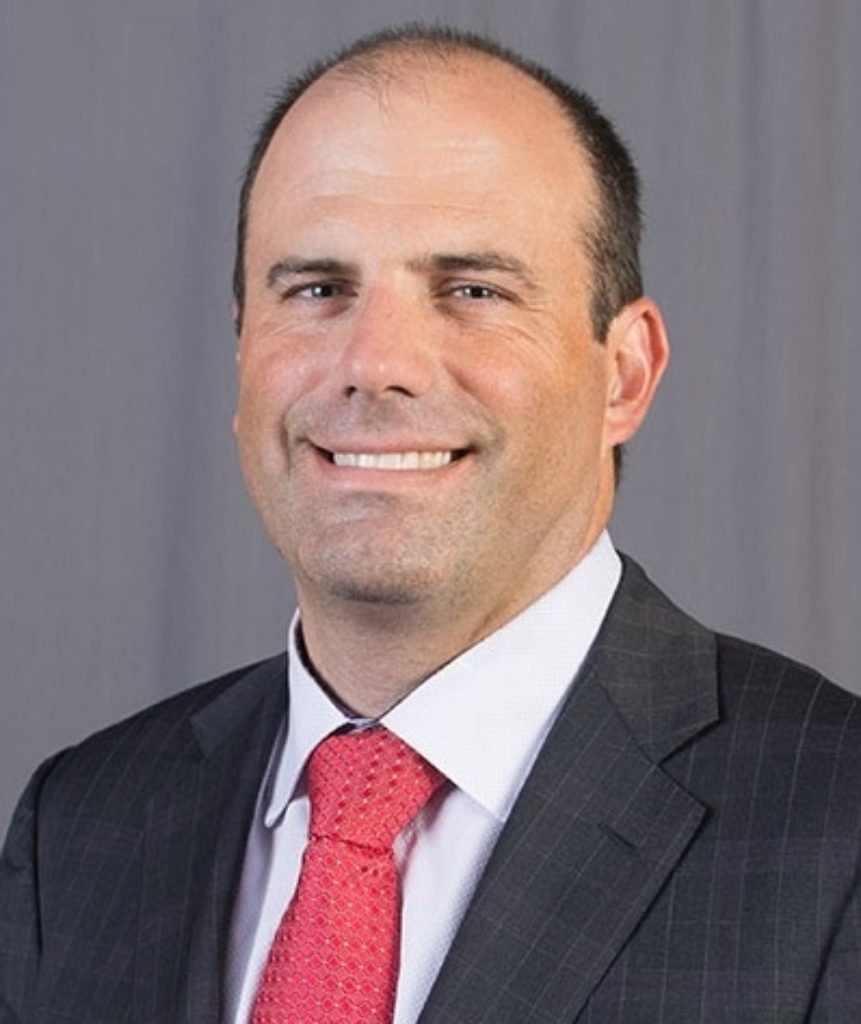 |
Robert Heath, NC State University, USA Robert W. Heath Jr. is the Lampe Distinguished Professor in the Department of Electrical and Computer Engineering at the North Carolina State University, where he is co-founder of the 6GNC research effort. From 2002 to 2020, he was with The University of Texas at Austin where he was involved in the leadership of their wireless group and created an initiative to bring together communications, sensing, and machine learning. Dr. Heath is also President and CEO of MIMO Wireless Inc. His research has been extensively funded by industry and government. Dr. Heath’s research interests include wireless communications, cellular systems, public safety, and military networks, and now 6G. He has authored or co-authored several books including “Introduction to Wireless Digital Communication” (Prentice Hall, 2017), “Millimeter Wave Wireless Communications” (Prentice Hall, 2014), and “Foundations of MIMO Communication” (Cambridge University Press, 2019). He has co-organized a number of IEEE conferences including CTW 2008, SPAWC 2009, ISIT 2010, GlobalSIP 2013, and GLOBECOM 2014, along with several workshops at ICC and GLOBECOM. |
Technical Program Committee
|
Dr. Mahsa Derakhshani, Loughborough University, UK Mahsa Derakhshani (Senior Member, IEEE) received the Ph.D. degree in electrical engineering degree from McGill University, Montréal, Canada, in 2013. She was an Honorary NSERC Postdoctoral Fellow with the Department of Electrical and Electronic Engineering, Imperial College London, from 2015 to 2016, a Post-Doctoral Research Fellow with the Department of Electrical and Computer Engineering, University of Toronto, Toronto, Canada, and a Research Assistant with the Department of Electrical and Computer Engineering, McGill University, from 2013 to 2015. She is currently a Senior Lecturer in digital communications with the Wolfson School of Mechanical, Electrical and Manufacturing Engineering, Loughborough University, U.K. Her current research interests include machine learning and optimization for communications, ultra-reliable low-latency communications, software defined wireless networking, mobile edge caching. She serves as the Editor for IEEE Wireless Communications Letters, IEEE IoT Magazine, and IET Signal Processing Journal.
|
|
Dr. Dong Li, Nokia Shanghai Bell, China Dong Li is a research scientist at Nokia Bell Labs China and is a Distinguished Member of Technical Staff at Nokia Bell Labs. He has been actively researching and developing solutions for the next generation wireless communication systems for more than 20 years. He received the B.Sc. and the M.Sc. degree in information and communication Engineering in 1998 and 2001, respectively, both from Xidian University, China. His research interests include signal processing, multi-antenna techniques, ultra-reliable low latency wireless communications for industrial automation and sidelink communications. He has co-authored more than 25 publications and more than 150 patents.
|
|
Dr. Tao Tao, Nokia Shanghai Bell, China Dr. Tao Tao is leader of the Next Generation Wireless MTC Department of Nokia Bell Labs China. He received the B.Sc degree from Southeast University, China, in 2006, and the Dr.-Ing. degree from the University of Duisburg-Essen, Germany, in 2014. His research interests include small cell, coexistence mechanism in unlicensed band, positioning, ultra-reliable low latency wireless communication for industrial automation and sidelink communication. He has co-authored more than 20 publications and more than 150 filed patent. He has led two government funding projects since 2016.
|
|
Prof. Mojtaba Vaezi, Villanova University, USA Mojtaba Vaezi received his Ph.D. in EE from McGill University, Montreal, Canada, in 2014. From 2014 to 2015 he was a researcher at Ericsson Research, Canada, and from 2015 to 2018 he was with Princeton University, in different research positions. He is currently an Assistant Professor at Villanova University. His research interests lie at the intersection of signal processing, communications, and information theory. Among his publications in these areas is the recent book Multiple Access Techniques for 5G Wireless Networks and Beyond, (Springer, 2019). Dr. Vaezi is a recipient of a number of research, academic and leadership awards, including IEEE Communications Letters’ exemplary editor award in 2018, Korea’s best ICT paper award in 2017, NSERC Postdoctoral Fellowship in 2014, and IEEE Larry K. Wilson Regional Student Activities Award in 2013. He is/was an Editor of IEEE Transactions on Communications, IEEE Communications Letters and IEEE Communications Magazine, and an organizer of the 1st to 6th NOMA workshops at VTC’17, GC’17, ICC’18, GC’18, ICC’19, and ICC’20.
|
|
Dr. Zhaorui Wang, The Chinese University of Hong Kong, Shenzhen, China Dr. Zhaorui WANG is now a Research Assistant Professor at the School of Science and Engineering, The Chinese University of Hong Kong, Shenzhen. He received the Ph.D. degree in Information Engineering from The Chinese University of Hong Kong (CUHK) in 2019, and the B.S. degree from University of Electronic Science and Technology of China (UESTC) in 2015. He was a postdoctoral fellow at The Hong Kong Polytechnic University and CUHK from 2019 to 2022. He is a recipient of the Hong Kong PhD Fellowship in 2015-2018. His research interests include intelligent reflecting surface (IRS) assisted communications, physical-layer network coding (PNC), and machine type communications.
|
|
Dr. Kai Ying, Sharp Laboratories, USA Kai Ying received the B.S. degree and the M.E. degree from the Department of Electronic Engineering, Shanghai Jiao Tong University, Shanghai, China, in 2010 and 2013, respectively, and the M.S. degree and the Ph.D. degree from the School of Electrical and Computer Engineering, Georgia Institute of Technology, Atlanta, GA, in 2013 and 2016, respectively. Currently, he is a senior researcher at Sharp Laboratories of America, Vancouver, WA. His research interests include nonlinear signal processing and ultra reliable low latency communications.
|
|
Dr. Paolo Baracca, Nokia Bell Labs, Germany Paolo Baracca (S’11 – M’13) is a Senior Research Engineer at Nokia since 2013. He received the B.Sc. and the M.Sc. degree in Telecommunications Engineering in 2007 and 2009, respectively, and the Ph.D. degree in Information Engineering in 2013, all from the University of Padova, Italy. His research interests include signal processing, multi-antenna and resource allocation techniques for 5G and 6G. He has co-authored more than 50 research papers, holds more than 30 issued or pending patents, and regularly serves as reviewer of IEEE journals and conferences.
|
|
Prof. Di Zhang, Zhengzhou University, China Di Zhang (S'13-M'17-SM’19) currently is an Associate Professor at Zhengzhou University, Zhengzhou 450001, China. He is also an Adjunct Researcher of Waseda University, Tokyo 169-8555, Japan (2017-now), he was a visiting Senior Researcher (PostDoc) of Seoul National University, Seoul, South Korea (2017-2018), and a visiting student of National Chung Hsing University, Taichung, Taiwan (2012). Dr. Zhang has participated in two international projects in wireless communications and networking co-funded by the EU FP-7, EU Horizon 2020, Japanese Soumushou, Monbushou, and NICT. He is serving as area editor of KSII Transactions on Internet and Information Systems, editor of the IEEE ACCESS, IET Quantum Communication, Journal of Circuits Systems and Computers. He has served as guest editor of the IEEE Wireless Communications, the IEEE NETWORK, IEICE Transactions on Internet and Information Systems; Chair of IEEE WCNC 2020, IEEE/CIC ICCC 2020, IEEE/CIC ICCC 2019. In 2019, he received the ITU Young Author Award and the IEEE Outstanding Leadership Award. His research interests include wireless communications, signal processing, Internet of things and their applications.
|
|
Dr. Yixin Zhang, University of Sheffield, UK Dr. Yixin Zhang received the B.Eng. degree in electronic and information engineering from Beijing University of Posts and Telecommunications, Beijing, China, in 2017, and the Ph.D. degree in electronic and electrical engineering from the University of Sheffield, Sheffield, UK, in 2022. She has been a researcher at Nokia Bell Labs since 2020. Her current research interests include channel characterisation, MIMO configuration, wireless network deployment, and smart built environment design.
Prof. Tan Do-Duy, Ho Chi Minh City University of Technology and Education, Vietnam Tan Do-Duy received his B.S. degree from Ho Chi Minh City University of Technology (HCMUT), Vietnam, and M.S. degree from Kumoh National Institute of Technology, Korea, in 2010 and 2013, respectively. He received his Ph.D. degree from Autonomous University of Barcelona, Spain, in 2019. He is currently with the Department of Computer and Communication Engineering, Ho Chi Minh City University of Technology and Education (HCMUTE) in Vietnam as an Assistant Professor. His main research interests include wireless cooperative communications, real-time optimisation for resource allocation in wireless networks, and coding applications for wireless communications.
Mr. Dang Van Huynh, Queen's University of Belfast, UK Mr. Dang Van Huynh (Student Member, IEEE) received the B.Eng. (hons.) degree in information technology and the M.S. degree in computer science from Vietnam National University HoChiMinh City, University of Information Technology (VNUHCM-UIT), Ho Chi Minh City, Vietnam, in 2017 and 2019, respectively. He is currently working toward the Ph.D. degree with the School of Electronics, Electrical Engineering and Computer Science, Queen's University, Belfast, U.K. From August 2017 to December 2020, he was a Research Assistant with the Faculty of Computer Networks and Communications, VNUHCM-UIT. He is a recipient of IEEE ComSoc Student Grant for the IEEE International Conference on Communications (ICC 2022). He has published as a lead author on journals and conferences such as IEEE GLOBECOM 2021, IEEE ICC 2022, IEEE Trans on Industrial Informatics, IEEE Wireless Communications Letters, etc. He regularly serves as a reviewer of IEEE journals and conferences. His research interests include ultra-reliable and low latency communications, industrial Internet of Things, mobile edge computing, convex optimization, and machine learning for wireless communications. |



